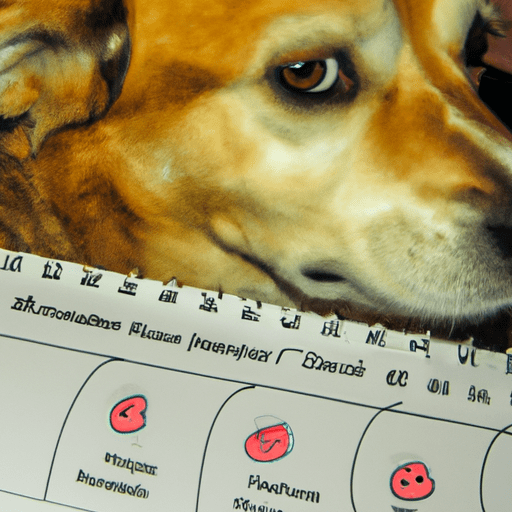As a caregiver to your beloved canine companion, it’s imperative to understand the nuances of their health, including their reproductive cycles. This article delves into the duration of a dog’s period, also known as the estrus cycle, and what you, as a devoted caregiver, should expect during this time.
Understanding Your Dog’s Estrus Cycle
Just like humans, female dogs have a reproductive cycle, although it differs significantly. Dogs typically go into heat, or estrus, twice a year. This period lasts between 2 to 4 weeks and can be broken down into four stages:
- Proestrus: This initial stage lasts about 9 days. You’ll notice swelling of the vulva and bloody discharge.
- Estrus: The actual “heat” period where your dog is receptive to mating. This stage lasts about 9 days as well.
- Diestrus: A period of rest lasting 60-90 days, regardless of whether mating occurred.
- Anestrus: A longer rest period, about 4-5 months, until the cycle begins again.
Spotting the Signs of Estrus
Being able to identify the onset of your dog’s period can help you manage it effectively. While the signs can vary, here are some common indicators:
- Swollen vulva
- Bloody or straw-colored discharge
- Increased urination
- Behavioral changes (such as clinginess or aggression)
How to Manage Your Dog’s Period
Managing your dog’s period can be a challenge, especially if it’s the first time. Here are some tips:
- Dog Diapers: These can help manage the discharge and keep your home clean.
- Monitor Behavior: Keep an eye out for behavioral changes. Remember, your dog may be feeling uncomfortable.
- Avoid Unwanted Pregnancy: If you’re not planning to breed, ensure your dog is kept away from unneutered males during the estrus stage.
| Tips | Why It Helps |
|---|---|
| Use Dog Diapers | Helps manage discharge and keep home clean |
| Monitor Behavior | Dog may feel uncomfortable and act out |
| Limit Male Contact | Avoid unwanted pregnancies |
Health Concerns and Your Dog’s Period
While a dog’s period is a natural process, there are some health concerns you should be aware of. Prolonged or frequent heat cycles can lead to Pyometra, a serious infection of the uterus. If you notice any changes in your dog’s cycle or behavior, consult with your vet immediately.
Frequently Asked Questions
Q: How often do dogs go into heat?
A: Dogs typically go into heat twice a year, roughly every six months.
Q: How can I tell if my dog is in heat?
A: Look for signs such as a swollen vulva, bloody discharge, increased urination, and behavioral changes.
Q: Can a dog’s period be a sign of health issues?
A: While it’s a normal part of a dog’s reproductive cycle, changes or irregularities could indicate health issues such as Pyometra. Always consult your vet if you’re concerned.
In conclusion, understanding your dog’s reproductive cycle is a crucial part of being a responsible and caring dog owner. Always remember to observe changes in your dog’s behavior, and do not hesitate to seek veterinary advice when needed.



